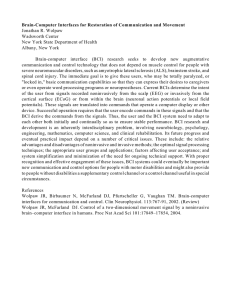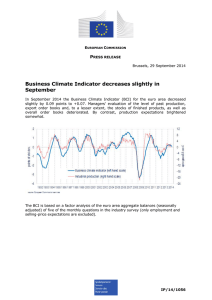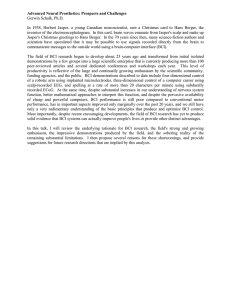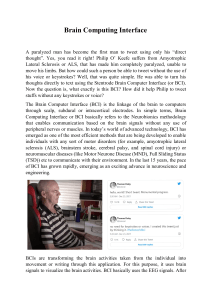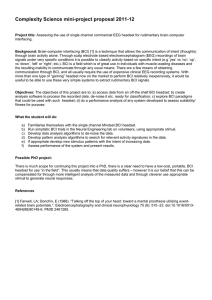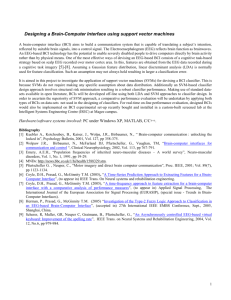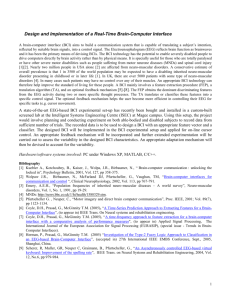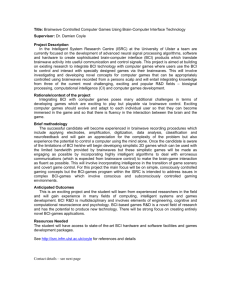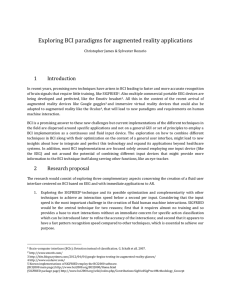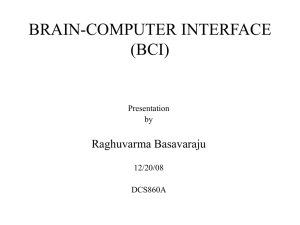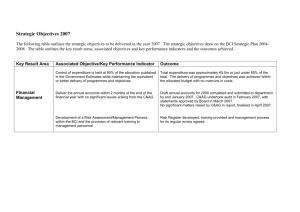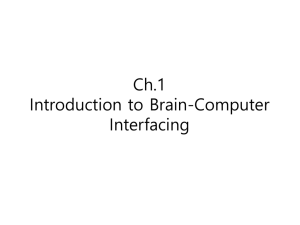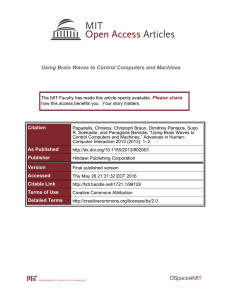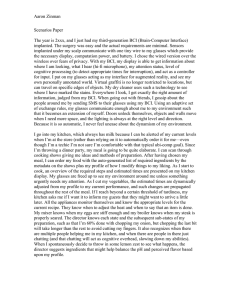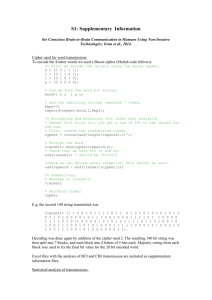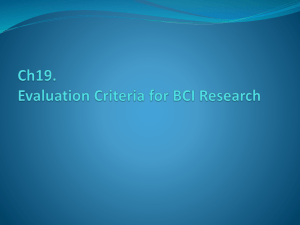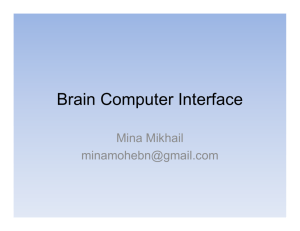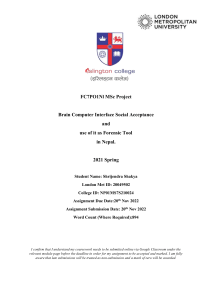bcig - University of Essex
advertisement
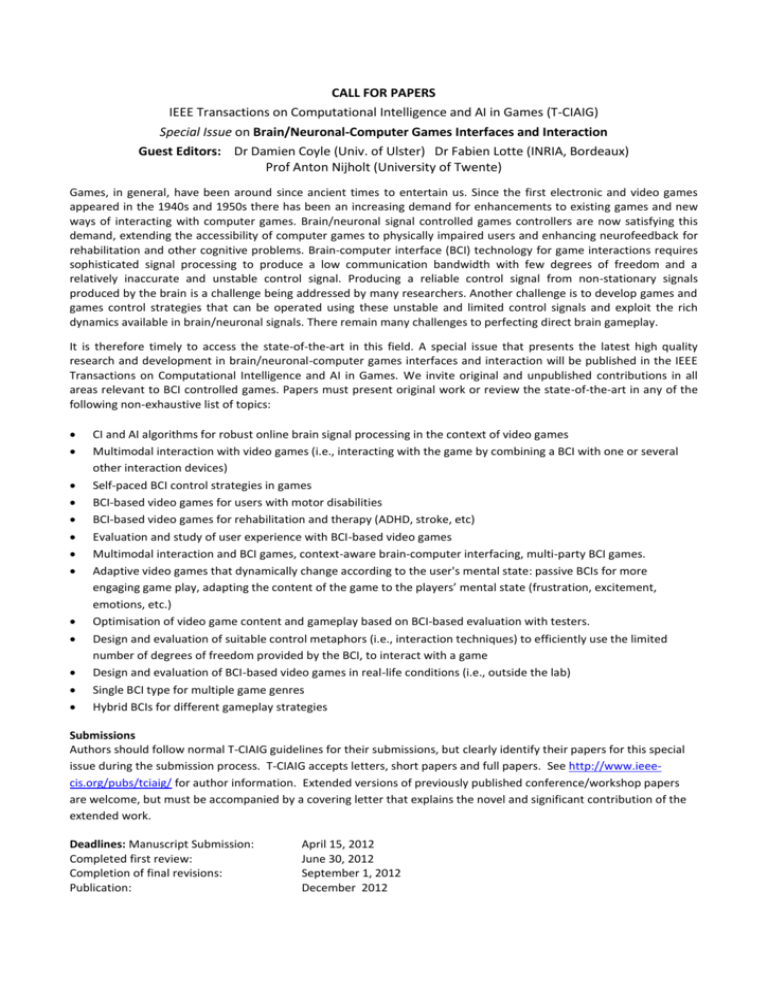
CALL FOR PAPERS IEEE Transactions on Computational Intelligence and AI in Games (T-CIAIG) Special Issue on Brain/Neuronal-Computer Games Interfaces and Interaction Guest Editors: Dr Damien Coyle (Univ. of Ulster) Dr Fabien Lotte (INRIA, Bordeaux) Prof Anton Nijholt (University of Twente) Games, in general, have been around since ancient times to entertain us. Since the first electronic and video games appeared in the 1940s and 1950s there has been an increasing demand for enhancements to existing games and new ways of interacting with computer games. Brain/neuronal signal controlled games controllers are now satisfying this demand, extending the accessibility of computer games to physically impaired users and enhancing neurofeedback for rehabilitation and other cognitive problems. Brain-computer interface (BCI) technology for game interactions requires sophisticated signal processing to produce a low communication bandwidth with few degrees of freedom and a relatively inaccurate and unstable control signal. Producing a reliable control signal from non-stationary signals produced by the brain is a challenge being addressed by many researchers. Another challenge is to develop games and games control strategies that can be operated using these unstable and limited control signals and exploit the rich dynamics available in brain/neuronal signals. There remain many challenges to perfecting direct brain gameplay. It is therefore timely to access the state-of-the-art in this field. A special issue that presents the latest high quality research and development in brain/neuronal-computer games interfaces and interaction will be published in the IEEE Transactions on Computational Intelligence and AI in Games. We invite original and unpublished contributions in all areas relevant to BCI controlled games. Papers must present original work or review the state-of-the-art in any of the following non-exhaustive list of topics: CI and AI algorithms for robust online brain signal processing in the context of video games Multimodal interaction with video games (i.e., interacting with the game by combining a BCI with one or several other interaction devices) Self-paced BCI control strategies in games BCI-based video games for users with motor disabilities BCI-based video games for rehabilitation and therapy (ADHD, stroke, etc) Evaluation and study of user experience with BCI-based video games Multimodal interaction and BCI games, context-aware brain-computer interfacing, multi-party BCI games. Adaptive video games that dynamically change according to the user's mental state: passive BCIs for more engaging game play, adapting the content of the game to the players’ mental state (frustration, excitement, emotions, etc.) Optimisation of video game content and gameplay based on BCI-based evaluation with testers. Design and evaluation of suitable control metaphors (i.e., interaction techniques) to efficiently use the limited number of degrees of freedom provided by the BCI, to interact with a game Design and evaluation of BCI-based video games in real-life conditions (i.e., outside the lab) Single BCI type for multiple game genres Hybrid BCIs for different gameplay strategies Submissions Authors should follow normal T-CIAIG guidelines for their submissions, but clearly identify their papers for this special issue during the submission process. T-CIAIG accepts letters, short papers and full papers. See http://www.ieeecis.org/pubs/tciaig/ for author information. Extended versions of previously published conference/workshop papers are welcome, but must be accompanied by a covering letter that explains the novel and significant contribution of the extended work. Deadlines: Manuscript Submission: Completed first review: Completion of final revisions: Publication: April 15, 2012 June 30, 2012 September 1, 2012 December 2012
